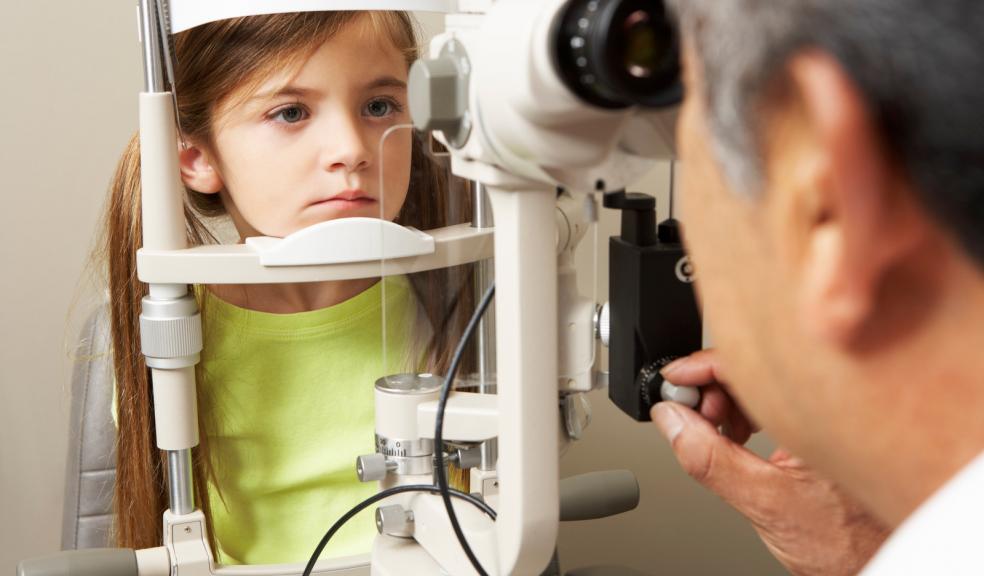
Medics urge parents to prioritise their children's eye health over the Easter break
Medics urge parents to prioritise their children’s eye health over the Easter break
Keep screen time to a minimum over the holiday
Arrange an eye health check-up for your children
Sharon Copeland, Optician at Feel Good Contacts is urging parents to prioritise their children’s eye health over the Easter break by reducing screen time and booking an eye health check up. After a year of online learning followed by leisure time spent in front of the screen, delaying an eye health check-up could be dangerous. After all it’s very difficult to know if your child has a problem with one eye when the vision is good in the other.”
This warning follows figures from private eye examination data and GOS which revealed that five million routine eye tests were missed during lockdown last year. With millions of children officially back at school, any eye health issues that go undetected could be detrimental to their vision, concentration and performance.
Copeland also recommends: “Before school starts for the summer term, it’s important to establish a good bedtime routine that doesn’t include screen time. Getting enough sleep is important for staying alert during the school day, so gradually start to limit screen time. The blue light emitted from screens causes digital eye strain, headaches and hampers sleep as it tricks your body into thinking it’s still daytime, and you should be awake. Use the extra time you have with your child to talk, read and do some eye yoga together.”
Feel Good Contacts has created a guide to some of the symptoms that parents can look out for that may signal abnormalities in a child’s eye health:
Difficulty reading – they may read slower than usual, lose their place whilst reading, hold books closer to their face, make numerous mistakes whilst reading text, skip words, or perhaps say them in the wrong order. This is usually a sign of dyslexia.
Continuously squinting to see things – They may avoid reading, particularly when what they are reading is far away. Or they may try to see out of the corners of their eyes or tilt their head to help focus on an object.
White or greyish white colour in the pupil – This can sometimes be a sign of cataracts, corneal ulcer, retinoblastoma (eye cancer in children) or uveitis. This will often affect your child’s visual clarity.
Eyes that are misaligned, i.e: they turn outwards, look crossed or don't focus together – Please note that it is not uncommon for a baby of up to 4 months to have crossed eyes as they are learning to control their eyes. Crossed eyes are usually a sign of strabismus (misaligned eyes) or amblyopia (lazy eye). This will affect the child’s visual acuity, particularly as the distance between objects and viewpoints change, for example, when doing sports and tracking a flying object such as a ball or looking from the chalk board to the paper.
Eyes that flutter quickly from side to side or up and down – This will greatly affect a child’s hand-eye coordination and they may have difficulty writing or playing sports. They will also have trouble keeping their eyes on one particular target, moving from one object to another, or moving their eyes along a page to read writing.
Eyes that are consistently watery, excrete puss, feel itchy or look red – These are common symptoms for eye infections which are caused by irritating substances entering the eye. You may notice that they rub their eyes frequently to relieve itchiness and irritation.
Eyes that are sensitive to light – this could be a sign of many conditions including cataracts and epilepsy. They may also frequently report that they have a headache.
Ali Mearza, Ophthalmic Consultant and Co-founder of Ophthalmic Consultants of London commented: “More often than not, your child may just need a pair of glasses to help them see clearer and reduce eye strain. If they’re short sighted, then glasses will be required for clearer distance vision and if they’re long sighted, then glasses will reduce strain when doing near work. More serious problems are rare but outcomes are better if problems are picked up and managed as early as possible.”
Mearza concluded: “If you spot any problems with your child’s eyes or vision, then you should visit an optician or GP to deal with the matter promptly before the condition exacerbates. The optician or GP will then refer you to a specialist paediatric ophthalmologist for further management as needed.”
ends-
About Ali Mearza, Ophthalmic Consultant and Co-founder of Ophthalmic Consultants of London
Ali Mearza qualified from Charing Cross & Westminster Medical School in 1996 and shortly after began his career in ophthalmology. He completed his training in London and went on to complete a year’s fellowship in cornea & external eye disease at Moorfields NHS Trust. He followed this with an additional one-year fellowship in laser refractive eye surgery at the prestigious Emmetropia Mediterranean Eye Institute on the island of Crete, the birthplace of modern LASIK.
Mr Ali Mearza was appointed as a consultant in 2007 and has transformed the sub-specialty corneal service at Imperial College Healthcare NHS Trust into one of the best in the country. He is considered one of the best surgeons in London and is regularly invited to share his expertise and insights to colleagues in the UK as well as internationally.
In July 2016 he was appointed as the Clinical Director of ophthalmology and is now responsible for the clinical leadership of the ophthalmology service at Imperial which spans across 3 sites; Charing Cross Hospital in Hammersmith, The Western Eye Hospital in Marylebone and St Mary’s Hospital in Paddington.
Amongst his other roles, he is a medical monitor and clinical investigator overseeing clinical trials related to new ophthalmic technologies and is a member of the UK and European Societies of Cataract and Refractive Surgery (UKISCRS, ESCRS) as well as the American Academy of Ophthalmology (AAO).
He has a keen interest in voluntary ophthalmology and has performed charitable work in India, Bali, Burma, Madagascar, Bangladesh, Ghana and Cambodia.
About Feel Good Contacts
Established in 2008 by qualified optometrists, UK based, Feel Good Contacts is one of the UK’s leading online suppliers of discounted contact lenses and eye care products.
Photo credit By bowdenimages on Canva













